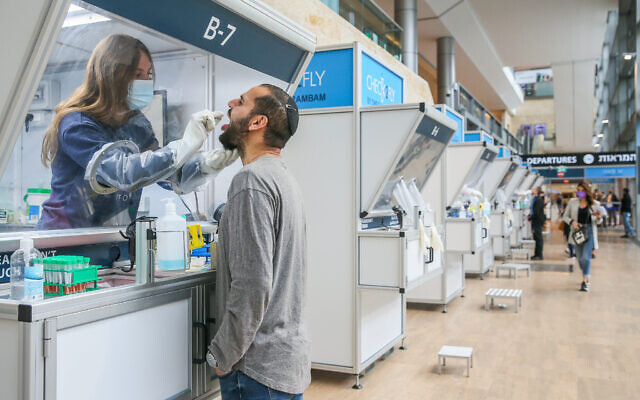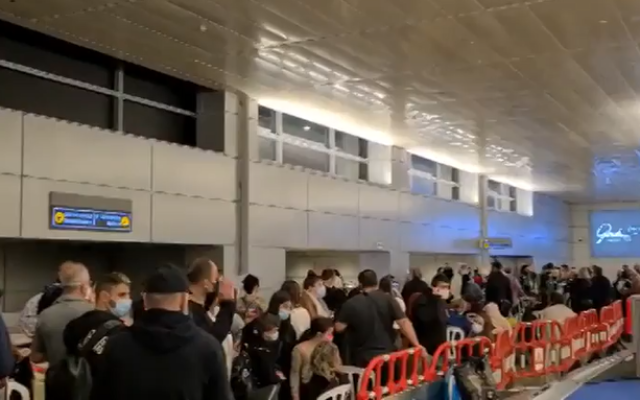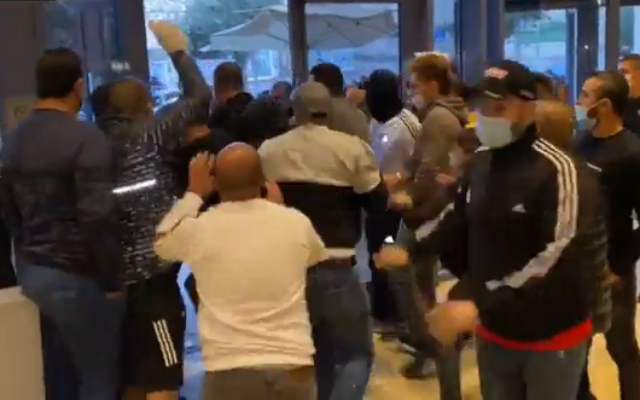Requirement for travelers to spend 2 weeks in state facilities had faced public criticism, was selectively enforced, and prompted clashes at isolation centers

After criticism, chaos and protests, Health Minister Yuli Edelstein announced Tuesday that Israelis returning from abroad will no longer have to quarantine in specially designated hotels, bringing the selectively enforced policy to an end.
The government had announced the controversial measure last week following the spread of coronavirus variants in Britain and South Africa, which are believed to be more infectious.
In a tweet, Edelstein said that any traveler must immediately take a virus test upon their arrival in Israel and quarantine at home for 14 days, which could be reduced to 10 days if they undergo a second test after nine days.
The move came a day after public criticism arose against the policy from a number of senior officials and clashes between those who had been forced into the hotels and the authorities running them.

Deputy Health Minister Yoav Kisch on Tuesday said those currently staying in the quarantine facilities would be allowed to complete their quarantine at home after undergoing another virus test. He said that incoming travelers who refuse to be tested at the airport will continue to be compelled to isolate at the hotels.
A ban on all foreign nationals from entering the country will remain in place. Until last week, foreign travelers were allowed entry into Israel to attend Health Ministry-approved lifecycle events for first-degree relatives, and for several other reasons.
Amid fears of a new, more contagious strain emerging, the coronavirus cabinet last week voted to require a stay in the hotels for 14 days, which could be reduced to 10 days with two negative coronavirus tests. Despite the government order, however, only around a third of Israeli entering the country ended up in the hotels with the rest receiving exemptions and being allowed to complete quarantine at home.
On Monday, dozens of people quarantined in the Leonardo Hotel in Jerusalem attempted to break out of the facility, clashing at the entrance with security guards, who forced them back inside.

At the same time, dozens of Israelis returning to the country from Dubai clashed with officials at Ben Gurion Airport while waiting in line to get an exemption from the hotel quarantine, Channel 12 reported.
Following Monday’s incidents, Defense Minister Benny Gantz urged the government to allow Israelis who enter the country to quarantine at home, on condition they undergo a COVID-19 test at the airport.
Kisch of Likud on Monday also questioned the policy approved by the government, saying on Twitter that due to the vaccines apparently being effective against the so-called British mutation, “it is right to move to home isolation and stop the isolation in hotels.”
As reported by The Times of Israel
